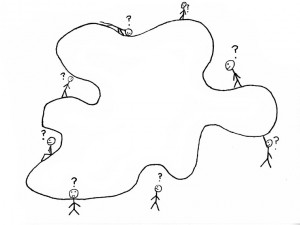The world can be an unknowable blob, and we just can't figure it out. Whether it be history, science, psychology or whatever, unraveling how we know what we know can be just as confusing as knowing the stuff to begin with. That's why I'm fascinated by books about the research and discovery we use to learn more about the world.
Starting from the deep end, how do you go about understanding some of the worst impulses of human nature? Explaining Hitler doesn't pretend it can actually explain how Hitler became Hitler, but instead takes a deep look at the scholars who have spent their lives trying to figure out how a man could rise so high by stooping so low. The book is an eerie journey to the edge of what history and research can teach us about humankind.
It's tempting to say that science can be more exact than this kind of history, but even science is tangled up in human behavior. We don't just pile discovery on top of discovery. It's more like we solve a bunch of problems with one way of thinking, and then people realize there are whole other ways to think about the same problems. Thomas S. Kuhn's classic The Structure of Scientific Revolutions takes a philosophical look at how humans make science, and although it's not an easy read, it's certainly a deep one.
The nitty-gritty details of how we make these discoveries can be just as interesting. The 4 Percent Universe follows a series of astronomers and physicists through their meticulous observations, outlandish theorizing and academic in-fighting until they come to the astounding conclusion that 96% of the universe is made up of matter and energy we've yet to be able to adequately describe. It's a fascinating blow-by-blow account of how science works and discoveries are made.
The next time you think you know something, try to figure out how you know it. It's a good way to idle away a sleepless night.



Add a comment to: How Do We Know That?